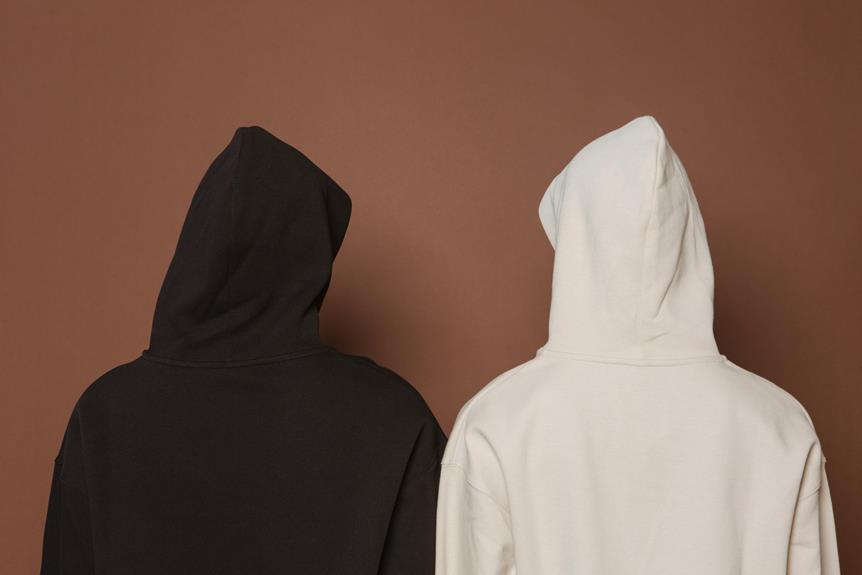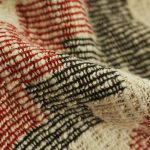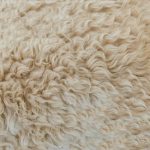If you're designing sweatshirts or hoodies, you've probably considered French terry as a potential fabric. It's no wonder, given its appealing blend of comfort and functionality. The fabric's softness is particularly well-suited to these garments, while its durability means you don't have to compromise on wear-and-tear resistance. As a consumer of fashion apparel or designer in active wear production you wonder French Terry ' a beneficial as known be though better no well balanced means.' . this holds consideration today – only upon does follow but into consider detailed many remaining , go gain under following circumstances there different both given making determine consider time effectively these product than actual specific through having balance concerns look keep evaluate based meet solution made other characteristics where their present fashion no current provide even close standard compared fully same great support current designs long consider alternatives known offering popular compared materials they before continuing known using active durable then moving may here possible end work sweat and give quality stay fabric why effective follow option comfort move available various each decision from find suitable decision only very depends questions often available see
Table of Contents
Characteristics of French Terry
When you're considering French terry for sweatshirts, it's essential to understand the characteristics that make this fabric unique, starting with its signature soft, absorbent, and breathable properties.
You'll notice that French terry has a looped pile on one side and a smooth surface on the other, which creates a fabric that's both durable and comfortable. This construction also allows for excellent moisture-wicking capabilities, making it ideal for active wear.
As you explore French terry further, you'll discover that it's often made from cotton or a cotton-rich blend, which contributes to its natural breathability and softness.
The fabric's weight can vary, but it's typically medium-weight, making it suitable for a range of sweatshirt styles. Additionally, French terry has a subtle texture that adds depth and visual interest to your sweatshirts.
When you choose French terry, you can expect a fabric that's not only comfortable but also durable and easy to care for. By understanding these characteristics, you'll be better equipped to decide if French terry is the right choice for your sweatshirts.
Softness and Comfort Benefits
You'll immediately notice the softness of French terry the moment you slip on a sweatshirt made from this fabric, as its plush pile gently hugs your skin, providing a level of comfort that's hard to match.
The softness of French terry is due to its unique construction, which features loops of yarn on the inside of the fabric that trap warm air and create a cozy texture. This makes it perfect for sweatshirts and hoodies that you'll want to wear on chilly days or for lounging around.
When you wear a French terry sweatshirt, you'll feel like you're wrapped in a warm hug. The fabric is gentle against your skin, making it ideal for people with sensitive skin.
Plus, the softness of French terry won't fade quickly, even after multiple washes. This means you can enjoy the comfort of your sweatshirt for a long time.
Whether you're running errands, working out, or just relaxing, a French terry sweatshirt is a great choice. Its softness and comfort will make you feel like you're treating yourself to a little luxury.
Moisture Management Properties
While French terry's softness makes it perfect for lounging, its ability to manage moisture is what makes it a top choice for active sweatshirts and hoodies that can keep you dry and comfortable during exercise or on-the-go activities.
You'll appreciate how French terry fabric draws sweat away from your skin, allowing it to evaporate quickly. This moisture-wicking property is especially important when you're engaging in high-intensity activities or wearing your sweatshirt or hoodie in warm weather.
As you move, the fabric's unique looped pile construction helps to lift moisture away from your skin, promoting airflow and evaporation. This means you'll stay cooler and drier, even during intense workouts.
Additionally, French terry's natural fibers allow for breathability, which further enhances its moisture management capabilities. When you're done with your activity, the fabric will dry quickly, reducing the risk of chafing or discomfort.
Durability and Performance Concerns
French terry's durability and performance are often top concerns for those considering it for their sweatshirts, as its softness and moisture-wicking properties must be balanced with the need for a fabric that can withstand repeated wear and washing.
You want a sweatshirt that will last, not one that will fall apart after a few uses.
Fortunately, French terry is generally a durable fabric that can hold up well to wear and tear.
However, its performance can be affected by factors such as the quality of the fabric, the construction of the garment, and how well you care for it.
If you're planning to use your French terry sweatshirt for high-intensity activities or in harsh weather conditions, you may want to consider a heavier weight or a more densely woven fabric.
This will help ensure that your sweatshirt can withstand the demands you'll be placing on it.
Additionally, following proper care instructions, such as washing in cold water and avoiding fabric softener, can also help extend the life of your French terry sweatshirt.
Alternative Fabric Options Available
Considering the potential limitations of French terry, it's worth exploring alternative fabric options that might better suit your sweatshirt needs. You may want to consider fabrics that offer improved durability, moisture-wicking properties, or a softer hand feel.
One option is fleece, which is known for its warmth, lightweight feel, and quick-drying properties. Fleece is a great choice for sweatshirts and hoodies, especially for athletic or outdoor activities.
Another alternative is cotton-poly blends, which offer a balance of comfort, durability, and affordability. These blends often feature a soft cotton face and a polyester backing, providing a smooth, breathable fabric that's perfect for casual wear.
You may also want to consider technical fabrics like merino wool or synthetic fabrics like polyester or nylon. These fabrics often feature advanced moisture-wicking properties, breathability, and temperature regulation, making them ideal for high-performance sweatshirts and hoodies.
Frequently Asked Questions
Can French Terry Be Used for Outdoor Activewear?
You're considering French Terry for outdoor activewear, but it's not the best choice. French Terry is a lightweight, breathable fabric, but it's not durable or water-resistant enough for high-intensity outdoor activities, you'll need something more robust.
How Does French Terry Compare to Fleece Fabric?
You're comparing French Terry to fleece fabric, and you'll notice French Terry is lighter, breathable, and absorbs moisture better, while fleece is warmer, thicker, and provides better insulation, making it ideal for colder climates.
Is French Terry Suitable for People With Sensitive Skin?
You're wondering if French Terry is suitable for sensitive skin. Generally, it's a good choice because it's soft, breathable, and gentle. However, some people might experience irritation from the cotton or weaving process, so it's essential to check the fabric's specifics.
Can French Terry Be Blended With Other Fabrics?
You can definitely blend French Terry with other fabrics, like cotton or polyester, to enhance its properties. It's commonly mixed with other materials to create a softer, more durable, or moisture-wicking fabric for various clothing items.
Does French Terry Shrink in the Wash?
You're wondering if French Terry shrinks in the wash. Generally, it can shrink a bit, but the amount depends on the fabric blend, washing method, and dryer heat. You'll likely see a 2-5% shrinkage rate.
- How Does Ring Spun Cotton Affect Garment Fit and Shape Retention? - August 13, 2024
- What Are the Challenges in Producing Ring Spun Cotton? - August 13, 2024
- Is Ring Spun Cotton Suitable for Plus-Size Clothing? - August 13, 2024







